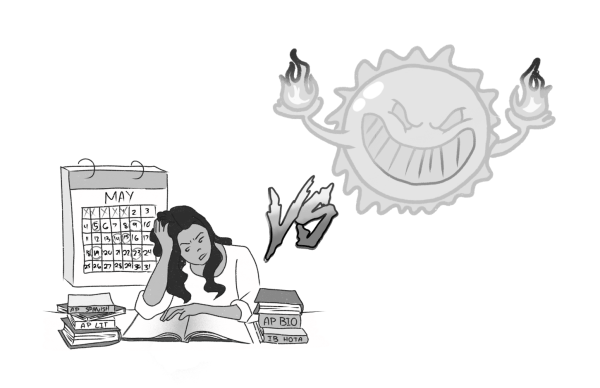Climate Climbs in Dangerous Times
In the 1930s, amid steadily increasing global temperatures, English inventor G.S. Callendar was one of the first people to propose that greenhouse warming was on the way. In the 1970s, environmentalism grew in popularity and more attention was drawn to this idea. Now, in November 2018, the Fourth National Climate Assessment (NCA4) was released by the US Global Change Research Program (USGCRP). The general results that it put forth eliminated any and all doubt of the world’s rapidly changing climate and the effects and causes of that shift.
NCA4 is a part of a quadrennial assessment of the global climate. It tracked and observed climate change, a term that encompasses the changes undergone by the climate system. This includes any temperature increase or decrease, precipitation, and severe weather phenomenon taking place over the course of multiple decades or more.
“[NCA4] is a comprehensive and authoritative report on climate change and its impacts in the United States,” the USGCRP website said.
Its findings cemented the same ideas that have been gaining traction for decades.The consensus is that in the US’s current state, climate change shows no sign of lessening. If anything, NCA4 points to the opposite.
“The impacts of climate change are already being felt in communities across the country,” NCA4’s report summary said. “More frequent and intense extreme weather and climate-related events, as well as changes in average climate conditions, are expected to continue to damage infrastructure, ecosystems, and social systems that provide essential benefits to communities.”
Though the situation is dire, it is not predetermined. The report enumerates specific measures to counter this alarming future.
“Future risks from climate change depend primarily on decisions made today,” the assessment said. “Transformations in the energy sector—including … increased deployment of renewable energy—along with policy actions at the national, regional, state, and local levels are reducing greenhouse gas emissions in the United States. While these adaptation and mitigation measures can help reduce damages in a number of sectors, … more immediate and substantial global greenhouse gas emissions reductions, as well as regional adaptation efforts, would be needed to avoid the most severe consequences in the long term.”
In other words, action is needed, and it is needed now. Climate change is a very real and very significant issue. Only with true effort and awareness can it be combatted. With reports such as NCA4, hopefully, that awareness spreads.
Hello there! Our goal is to provide relavent, engaging journalism for readers of all ages. Your donation will support the student journalists of the Wolfpacket at Claremont High School, and will allow us to purchase equipment, print our monthly issues, and enter in journalism competitions. We appreciate your consideration!

Asiya Junisbai is an Opinions Section editor that has been with the Woflpacket since her sophomore year. As a senior at CHS that is finishing high school...






